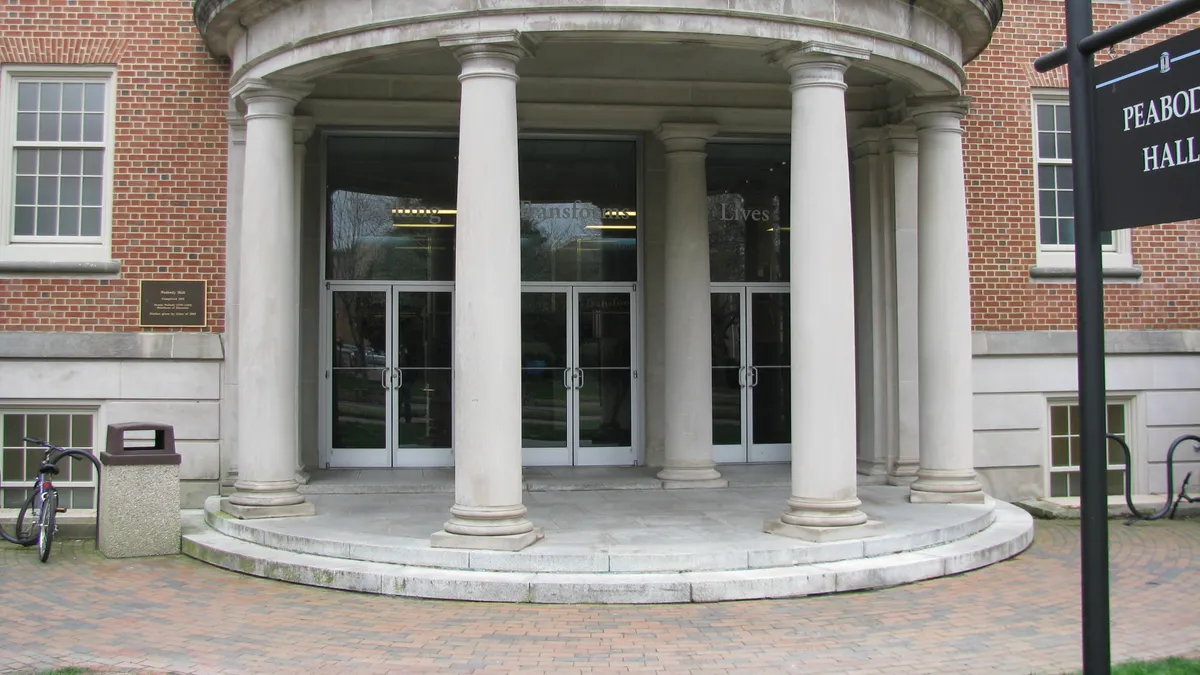Dive Brief:
-
The University of North Carolina at Chapel Hill's undergraduate admissions practices are under legal scrutiny in a highly watched federal case that began Monday and could reach the U.S. Supreme Court.
-
Students for Fair Admissions, the same anti-affirmative action group that sued Harvard University, argues the state's flagship discriminates against White and Asian applicants. The allegations differ from those against Harvard.
-
Race-conscious admissions policies have faced several legal challenges in recent years and have been upheld, but the high court's new conservative majority could change that.
Dive Insight:
SFFA has been behind high-profile lawsuits alleging that admissions practices at Harvard, as well as the University of Texas at Austin, are prejudicial. Federal judges have sided with the institutions in both cases, though SFFA appealed the Harvard outcome.
The case against UNC-Chapel Hill is akin to SFFA's complaint against UT Austin. The group, headed by long-time affirmative action opponent and conservative legal strategist Edward Blum, is arguing UNC-Chapel Hill's admissions model too heavily favors Black and Hispanic applicants over more qualified White and Asian applicants. SFFA alleges this violates the Equal Protection Clause of the 14th Amendment.
In the Harvard case, SFFA instead alleged the school discriminated against Asian American applicants by holding them to a higher standard than other students seeking admission.
UNC-Chapel Hill rebuts that its use of race in admissions is "narrowly tailored," according to a brief its lawyers filed last year. Race is one of many factors the university considers and it doesn't use racial quotas or targets, they wrote.
Though SFFA says UNC-Chapel Hill hasn't pursued race-neutral approaches to diversifying the campus, the university has mulled other models. In 2012, it considered a system in which it would accept all in-state applicants in the top 10% of their high school classes, but found doing so would increase racial diversity only marginally, while potentially degrading academic quality, court filings state.
The trial began Monday by dissecting UNC-Chapel Hill's current procedures, with SFFA claiming the university uses "de facto quotas," according to a local media report.
Legal pundits predict the high court will likely strike down race-conscious policies as a result of its new conservative bent. The Harvard and UNC-Chapel Hill cases could reach the bench, based on the pattern of previous SFFA legal challenges.
Affirmative action also has proven controversial in even the most left-aligned states. California voters declined to lift the state's ban on affirmative action in public college admissions this election cycle, despite the ballot measure being supported by its two university systems and its powerful Democratic political establishment.















